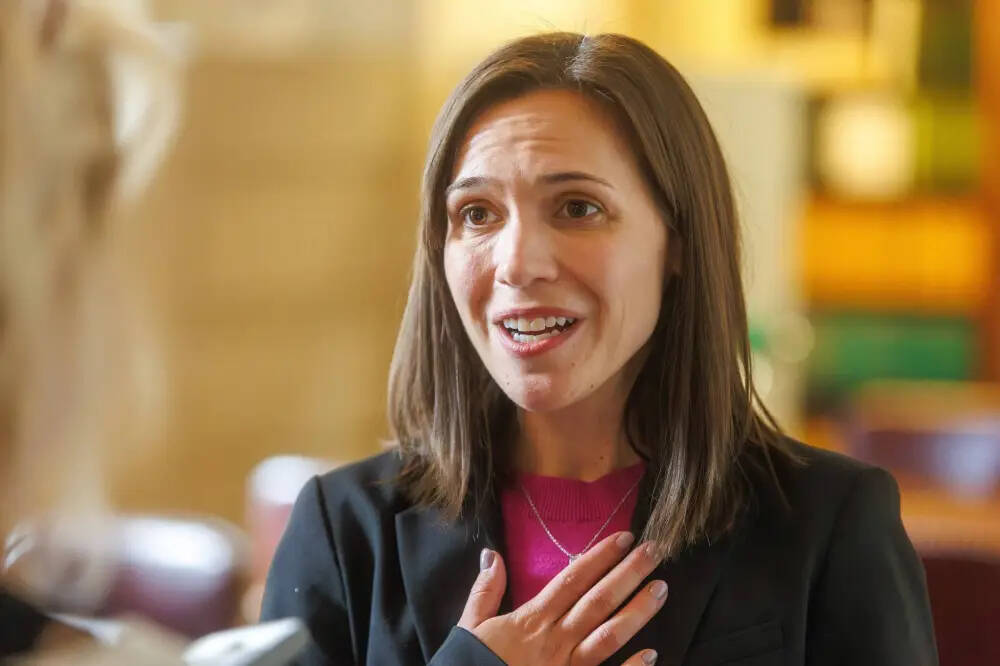Lone Liberal MLA calls for tri-party co-operation on foster care rates
Advertisement
Read this article for free:
or
Already have an account? Log in here »
We need your support!
Local journalism needs your support!
As we navigate through unprecedented times, our journalists are working harder than ever to bring you the latest local updates to keep you safe and informed.
Now, more than ever, we need your support.
Starting at $15.99 plus taxes every four weeks you can access your Brandon Sun online and full access to all content as it appears on our website.
Subscribe Nowor call circulation directly at (204) 727-0527.
Your pledge helps to ensure we provide the news that matters most to your community!
To continue reading, please subscribe:
Add Brandon Sun access to your Free Press subscription for only an additional
$1 for the first 4 weeks*
*Your next subscription payment will increase by $1.00 and you will be charged $20.00 plus GST for four weeks. After four weeks, your payment will increase to $24.00 plus GST every four weeks.
Read unlimited articles for free today:
or
Already have an account? Log in here »
Hey there, time traveller!
This article was published 26/01/2024 (704 days ago), so information in it may no longer be current.
WINNIPEG — Liberal interim leader Cindy Lamoureux will call for an emergency debate on foster care rates when the Manitoba legislature resumes March 6.
“If we could put partisan politics aside, I believe that we can profoundly change the lives of many children here in Manitoba,” the party’s lone MLA (Tyndall Park) said at a news conference Thursday.
Basic maintenance rates, which help to cover expenses such as food and clothing, haven’t increased since 2012, according to the Manitoba Foster Parent Association. The rates are about $22 to $32 per child per day, depending on age and geographic location.

Service fees, which help parents care for children with more complex needs, haven’t increased since 2002, and range from $45 to $120 per child per day, according to association president Jamie Pfau.
“They’re the most vulnerable children in our province and they have almost no support,” Pfau, a foster parent for 13 years, said at the news conference in Winnipeg. “If I can’t afford to raise this child, then who will?”
Families Minister Nahanni Fontaine said in an interview she plans to meet next week with association representatives.
“I am still in the process of reviewing all of the ways that we can best support children and families, including foster families who provide a very important and necessary service for Manitoba children,” the minister said Thursday.
She noted it’s not the provincial government that decides how much funding foster families receive, but the responsible child welfare authorities.
“We fund authorities through what’s called single envelope funding and then the authorities determine where those funds go for each of their mandated agencies.”
Those authorities received a $13.8-million increase this past year to respond to the rising cost of care and services, the minister said.
She couldn’t say if more funding increases are on the way, as Manitoba budget deliberations are underway.
“I understand the pressures that foster parents or caregivers are feeling with the high cost of living,” said Fontaine. “Our government is trying to make life more affordable.”
The NDP government is also keeping a close eye on federal Bill C-92 and the transfer of jurisdiction over child welfare to Indigenous communities and organizations, which is expected over time to reduce the reliance on provincially-funded foster care providers.
The federal law came into force four years ago, and recognizes the inherent right of First Nations, Inuit and Métis to develop their own specific child and family services legislation.
“Peguis First Nation was one of the first First Nations that has exercised full jurisdiction, and since they exercised jurisdiction, they’ve only apprehended one child,” Fontaine said. “That’s quite extraordinary.”
Jan. 21 marked the two-year anniversary of Peguis (located some 190 kilometres north of Winnipeg) putting its Honouring Our Children, Families and Nation Act into effect.
Jan. 31 will mark one year since the First Nation signed a historic agreement to take control of its own child welfare services.
Fontaine said she expects more Manitoba First Nations to follow suit, starting this spring.
“This truly is an opportunity to exercise jurisdiction for Indigenous nations and First Nation communities,” the minister said. “They will have full authority and control over their child welfare. I’m really excited to be a part of that.”
Meantime, Pfau said there is hope the Manitoba government will address foster families’ concerns.
“I am truly excited about this opportunity and I do feel we are in a place now where we can make real change,” Pfau said.
“We’ve been in a (child welfare) crisis for well over a decade,” added Lamoureux. “Every political party, no matter who’s in power, has said this.”
A spokesperson for the Opposition Progressive Conservatives said: “The NDP has the opportunity to engage the member from Tyndall Park in good faith on this important issue and respond by adjusting these rates in their budget.”
In 2019, the Office of the Auditor General raised concerns the basic fostering rates had been frozen and failed to adequately compensate foster parents.
An OAG report said special rates were set inconsistently within and across agencies. It recommended the government regularly review rates to ensure costs are covered.
The recommendation had not been implemented, as of May 2023.
» Winnipeg Free Press
